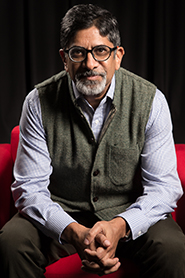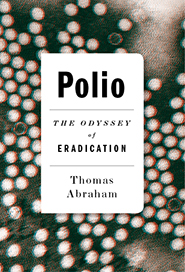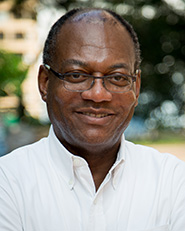Polio - The Odyssey of Eradication
|
Speaker: |
Thomas Abraham, Honorary Associate Professor, Journalism and Media Studies Centre, HKU |
|
Moderator: |
Keith Richburg, Director, Journalism and Media Studies Centre, HKU |
|
Date: |
11 October 2018 (Thursday) |
|
Time: |
6:30 - 8:00 pm |
|
Venue: |
G/F Seminar Room, Main Library, The University of Hong Kong |
|
Language: |
English |
About the Speaker
|
Photo by AJ Libunao. |
Thomas Abraham is an Honorary Associate Professor at the Journalism and Media Studies Centre (JMSC). His research work focuses on risk communication during infectious disease epidemics, the role of the media in communicating risk and infectious diseases, and global health security. He has been a consultant for the World Health Organization and other international organisations on risk communication and worked at WHO headquarters in Geneva during the influenza pandemic. |
About the Guest Speaker
|
|
Keiji Fukuda is the Director and a Clinical Professor at The University of Hong Kong School of Public Health. He previously worked at the World Health Organization (WHO) in several capacities including Assistant Director-General (ADG) and Special Representative of the Director-General for antimicrobial resistance; ADG for the Health Security and Environment Cluster; and Director of the Global Influenza Programme. Before that, he worked at the U.S. Centers for Disease Control and Prevention (CDC) as the Epidemiology Section Chief, Influenza Branch and as a Medical Epidemiologist in the Viral Exanthems and Herpesvirus Branch, National Center for Infectious Diseases. Professor Fukuda has been a global public health leader in many areas including health security; emerging infectious diseases including seasonal, avian and pandemic influenza, SARS, MERS and Ebola; antimicrobial resistance; development of the Pandemic Influenza Preparedness Framework; implementation of the International Health Regulations; food safety; and chronic fatigue syndrome. He has considerable experience in epidemiological research and field investigations, media communications and international diplomatic negotiations including those held to establish a historic Heads of State level meeting on antimicrobial resistance at the United Nations in 2016. He has a BA in Biology, an MD; an MPH; was trained in the Epidemic Intelligence Service at CDC and is certified in internal medicine by the American Board of Internal Medicine. |
About the Book
|
|
In 1988, the World Health Organization launched a twelve-year campaign to wipe out polio. Thirty years and several billion dollars over budget later, the campaign grinds on, vaccinating millions of children and hoping that each new year might see an end to the disease. But success remains elusive, against a surprisingly resilient virus, an unexpectedly weak vaccine and the vagaries of global politics, meeting with indifference from governments and populations alike. How did an innocuous campaign to rid the world of a crippling disease become a hostage of geopolitics? Why do parents refuse to vaccinate their children against polio? And why have poorly paid door-to-door health workers been assassinated? Thomas Abraham reports on the ground in search of answers. |
About the Moderator
|
|
Keith Richburg is a journalist and former China correspondent who spent more than thirty years overseas for The Washington Post, serving as bureau chief in Paris, Hong Kong, Jakarta, Nairobi, and Manila. He covered the invasion in Iraq, the fall of the Taliban in Afghanistan, the US military intervention in Somalia, the genocide in Rwanda, and the 1997 handover of Hong Kong to China. He was also The Post’s Foreign Editor from 2005-2007 and helped cover the 2008 U.S. presidential election. After retiring from the Post in 2013, he became a fellow at the Institute of Politics at Harvard University and a lecturer of international reporting at Princeton University. Richburg has a BA from the University of Michigan and an MA in international relations from the London School of Economics. He has won several awards for his foreign coverage and was twice a finalist for the Pulitzer Prize for his reports from Somalia. Richburg is the author of Out of America: A Black Man Confronts Africa (1997). |





